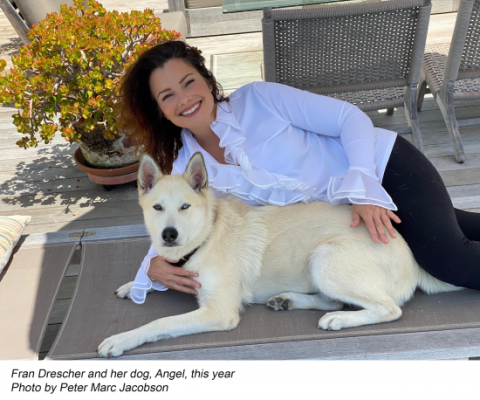Exclusive Interview with Fran Drescher
At 62, Fran Drescher is as vibrant and energetic as ever. Between adapting her popular 1990s sitcom, "The Nanny" for Broadway and running the nonprofit organization Cancer Schmancer, the veteran comedian has her hands full.
The much-loved actress is especially grateful for her good health, having been diagnosed with uterine cancer in 2000.
"Thank God, I am about to celebrate 20 years of wellness," Drescher told HealthyWomen in an exclusive interview. "Cancer opened my eyes and put me on a path that I never could have imagined. I changed the way I eat, all of my personal care items, cleaning and gardening products."
Misdiagnosed
Reaching that path was not easy. It took Drescher two years and eight doctors to get an accurate diagnosis.
"I had typical uterine cancer symptoms, which primarily are staining between periods and cramping after sex," Drescher said.
"Everybody thought I was perimenopausal because I was actually too young and too thin to be the usual patient with uterine cancer. I kept slipping through the cracks every step of the way and was given hormone replacement therapy four different times. Each one did not agree with me."
As time kept passing and Drescher wasn't feeling better, she knew she had to continue to advocate for herself.
"I was feeling worse, and nobody was helping me. I was feeling scared and frustrated, in need of taking charge of my own destiny," she explained. "So I kept seeing other doctors. Most people wouldn't challenge a doctor who's telling you, you are essentially well, let alone seven doctors! But I knew I felt something strange."
Doctor number eight knew Drescher had had these symptoms for two years and had seen seven other doctors, but agreed with the other doctors that she didn't fit the profile so didn't want to test her for cancer.
At this point, Drescher was on her fourth round of HRT and began bleeding round-the-clock, so she phoned her latest doctor (number eight).
"I said, ‘this can't be the right treatment. It's making me worse!' And she had me stop it, thinking it was probably just the wrong amount of estrogen. She said, ‘I think we should do an endometrial biopsy.' Doctor number one had said I was too young for that. So because of my age, they did not want to consider that I had uterine cancer.
"And then three days later, she called and said, ‘I am very surprised. You have adenocarcinoma. I said, ‘what's that?' And she replied, ‘uterine cancer.'"
Feeling betrayed
Ultimately, Drescher felt "very betrayed" by the medical community for not giving her this "ridiculously simple" test to rule out cancer sooner.
"I realized that doctors are so bludgeoned by big business health insurance to go the least expensive route of diagnostic testing . . . This could cost you your life. I was very lucky because I was still in stage one, with a very slow-growing gynecologic cancer.
"But a woman with ovarian cancer would not be so lucky, because that is a more aggressive cancer. When I meet a woman who has been told she has irritable bowel syndrome, I say, ‘I hope that is what you have. But you should make sure your ovaries are not diseased. Because very often, at the cancer's earliest and most curable stage, ovarian cancer is misdiagnosed for irritable bowel syndrome, just like uterine cancer is often misdiagnosed for perimenopause."
On a mission
In 2002, Drescher wrote "Cancer Schmancer," a memoir about her cancer journey. While on her book tour, she met many women with similar stories.
"One of the most significant things that I learned is that my story was not unique, which was very mind-blowing to me. I wrote the book so that others wouldn't go through what I did. I very quickly realized that my experience is really quite common and happens often. It became clear that the book was not the end, but just the beginning of what became a life's mission."

























